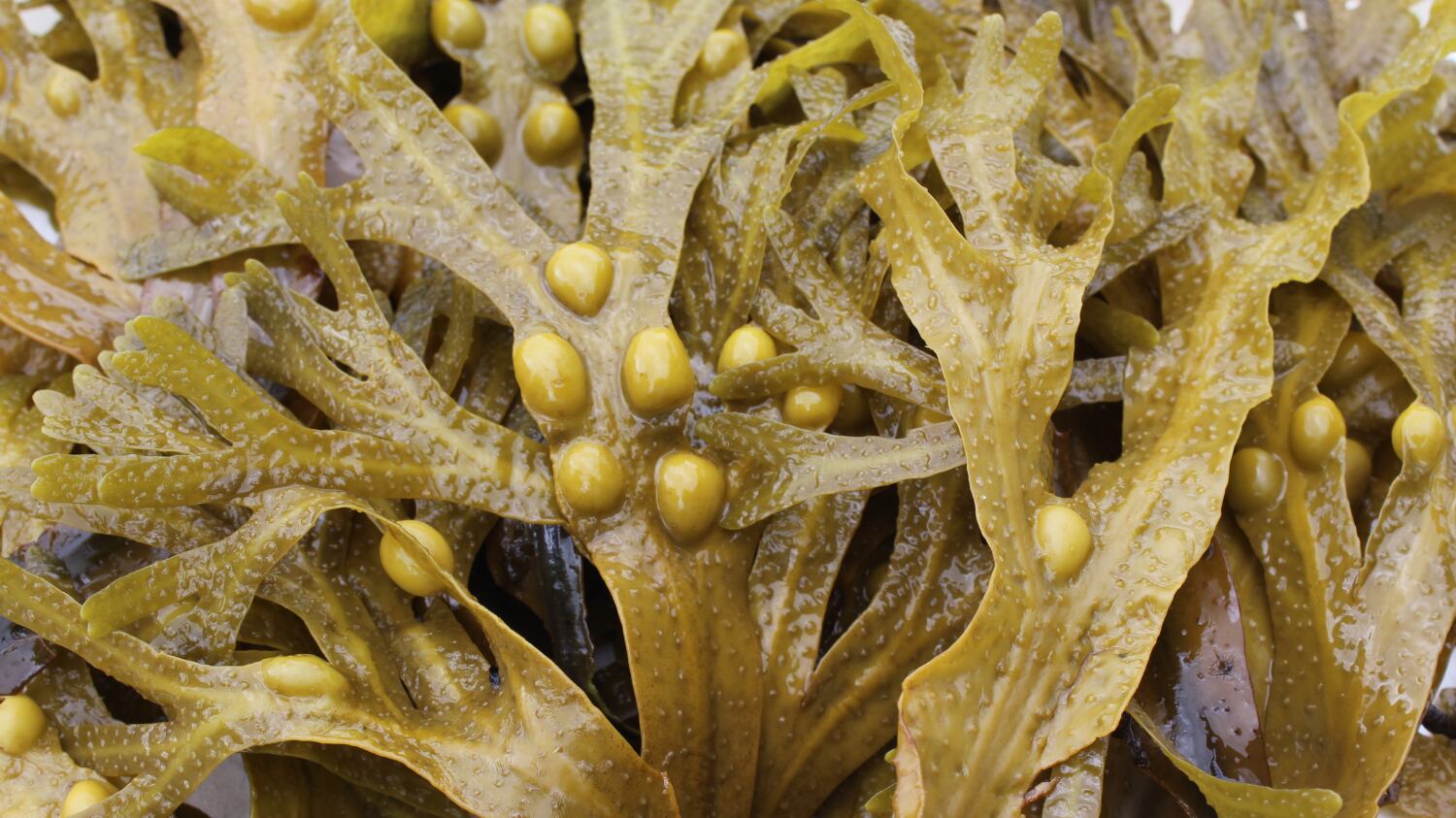The UK-based seaweed processing business has completed commercial-scale trials of its proprietary fucoidan extraction process at the bioprocessing facility Centre for Process Innovation (CPI)—a key step in bringing Thalivra to market.
The trials began with 500-liter batches and were later scaled to 1,000-liter batches. As there was no compromise to product purity or performance, the extraction process has been validated. This allows BioMara to produce commercial-grade fucoidan samples.
It has also initiated a three-phase study to substantiate Thalivra’s bioactivity and bioavailability for gut health solutions. This research is funded in part by a grant of over £300,000 from Innovate UK Launchpads.
“Despite the potential for commercial-scale seaweed cultivation in Scotland to generate over £70m by 2040, growth is hindered by challenges in linking supply with demand and limited diversity in valuable seaweed market applications,” according to a press release announcing the funding.
“Given the current reliance on imported fucoidan due to the lack of UK producers, BioMara aims to be the premier UK seaweed-biomass biorefinery. Aligned with ‘Levelling Up’ goals, the project advances bio-based manufacturing in Scotland to meet the rise in global demand for next-generation plant-based prebiotics and food additives.”
As Jay Dignan, CEO of BioMara told NutraIngredients, “The aim of BioMara’s ongoing research is to help position its fucoidan as a unique natural solution for gut health that gives our customers a defensible position in the market”.
Biomara’s fucoidan ingredient
Biomara sources its raw material from regenerative seaweed, which offers significant environmental and social benefits, Dignan said.
Seaweed farming does not require freshwater, arable land or chemical inputs and provides significant ecological benefits. By working with regional growers and harvesters, BioMara looks to support coastal economies while ensuring a traceable and sustainable supply chain.

The company has developed an extraction technology optimized to preserve the bioactivity of target compounds while enabling the isolation of multiple products from a single biomass input.
As Dignan explained, fucoidan is a complex, sulphated polysaccharide found primarily in the cell walls of brown seaweeds to protect it from stress and damage.
“Its structure can vary significantly depending on the species (of which there are thousands), growth conditions (different ocean conditions affect composition), time of harvest and especially the extraction methods,” he said.
“BioMara’s proprietary bioprocessing platform means that our fucoidan’s bioactivity is preserved and native beneficial characteristics associated with the original seaweed fucoidan molecule are kept.”
According to BioMara, Thalivra fucoidan acts by supporting beneficial bacteria like Akkermansia muciniphila and Bacteroides spp., which play important roles in gut barrier integrity and metabolic health.
It may also promote beneficial bacteria without enhancing the growth of harmful strains, supporting a balanced gut microbiome.
“BioMara’s studies show different fucoidan fractions exhibit highly specific prebiotic effects, providing precision in gut health formulations by selectively supporting targeted Lactobacillus strains,” Dignan said.
“It offers anti-inflammatory, immune-modulating, antiviral and gut barrier support properties, extending benefits beyond basic gut health. For example, this helps to reduce inflammation in the gut and systemically, which is not a core feature of inulin or most probiotics.”
Gut health research
BioMara has partnered with Abertay University in Dundee, Scotland to pursue scientific validation through Project BioSWELL (Biotechnological Innovations for Optimised Seaweed Wellness and Economic Levelling-up).
The first step involves simulating human digestion in vitro and observing Thalivra’s journey through the digestive process. Researchers will then evaluate its ability to cross the intestinal wall, a factor in determining its effectiveness. In the final phase, researchers will investigate Thalivra’s impact on human gut bacteria, specifically looking for increased production of beneficial short-chain fatty acids, a strong indicator of potential gut health benefits.

“The aim of BioMara’s ongoing research is to help position its fucoidan as a unique natural solution for gut health that gives our customers a defensible position in the market,” Dignan said.
He noted that consumer interest in the microbiome’s impact on health has evolved significantly in recent years, and they are increasingly cognizant of the “critical, albeit complicated role, the gut microbiome plays in overall health, immunity, mood and even cognition,” thanks to improving scientific evidence.
“This understanding means consumers want to move beyond single-source probiotics or prebiotics to more sophisticated, multi-component/strain solutions,” he said.
“This shift reflects a deeper understanding that optimal gut health depends on a diverse microbiome supported by a range of fibers and other ingredients like bioactive compounds.”
There is potential for fucoidan use across several demographics, Dignan noted, from active, health-conscious adults to those focused on healthy aging and individuals dealing with digestive issues.
Fuciodians have demonstrated prebiotic effects, gut barrier support, immune modulation and anti-inflammatory properties. Recent research also suggests that they may potential for tackling metabolic syndrome and obesity.
“Fucoidan’s impact on gut health and SCFA production can improve metabolic markers, support weight management and reduce inflammation, and early research suggests a positive effect on blood sugar levels, which could be valuable for pre-diabetic or diabetic populations,” Dignan said.



